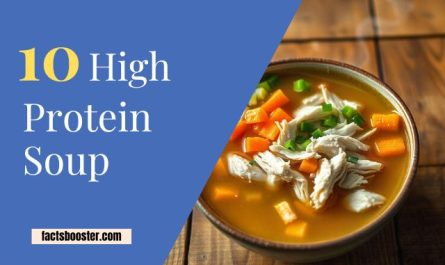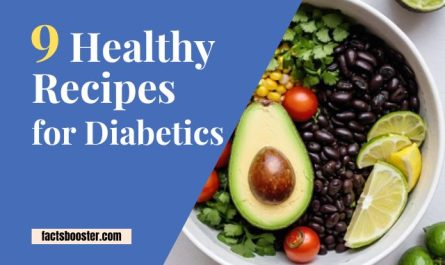Best food to eat when you have H. Pylori turns crucial, aiming at easing symptoms and fostering a faster recovery. H. Pylori, a bacterium found in the digestive tract, can lead to ulcers and increase the risk of stomach cancer. Managing its symptoms effectively often requires a combination of medication and dietary adjustments. Emphasizing the right foods plays a crucial role in alleviating discomfort and promoting recovery.
Key Takeaways:
- Dietary management is essential for alleviating H. Pylori symptoms.
- Specific foods can help in managing symptoms and enhancing stomach health.
- Consulting healthcare professionals is advised for a personalized diet plan.

What is H. Pylori
H. pylori, a bacterium found in the stomach lining, has troubled many with its presence. Its causes, deeply rooted in contaminated food or water, lead to infections that many might overlook initially.
Symptoms include stomach pain, bloating, and heartburn, wreaking havoc on digestive health. This condition, if left untreated, escalates into ulcers or, in severe cases, stomach cancer. Understanding H. pylori is paramount for maintaining stomach health and overall well-being.
Importance of Diet in Managing H. Pylori
The right diet will significantly influence your journey towards overcoming H. Pylori. By focusing on what to eat with H. pylori, you ensure that the body gets the necessary nutrients to fight the infection and heal.
Foods rich in probiotics and high in omega-3 and omega-6 fatty acids have shown efficacy in managing H. pylori symptoms and promoting stomach health. Incorporating these into your daily intake isn’t just a choice; it’s a vital step towards a healthier digestive system.
Natural remedies for H. pylori, including a carefully chosen H. pylori diet, offer a beacon of hope for those seeking relief without solely relying on medication.
Read more:
Best Food to Eat When You Have H. Pylori
Facing H. pylori, your diet shifts to the forefront of battling this stomach affliction. Recognizing the best food to eat when you have H. Pylori turns crucial, aiming at easing symptoms and fostering a faster recovery.
Balanced selections, rich in probiotics and gentle on the stomach, form this diet’s cornerstone. It’s an approach, blending science with natural remedies for H. pylori, dedicated to strengthening your stomach health.
1. Probiotics
Probiotics have emerged as beneficial allies in the battle against H. Pylori, enhancing digestive health effectively. By introducing beneficial bacteria, probiotics can help restore the natural balance within the digestive system. This recalibration aids in suppressing H. Pylori’s adverse effects, offering a smoother path to recovery. (1)
2. Fruits and Vegetables
Easing your struggle with H. pylori, certain fruits and vegetables have proven crucial. They not only augment your body’s defenses but also ensure a smoother digestive process. Focus leans heavily on those with less fiber, promoting an uncomplicated digestion journey. Indeed, peeled apples and steamed broccoli can be significant allies in your recuperation phase from H. pylori infection.
3. Honey
Harnessing its antimicrobial qualities, honey emerges as a natural remedy for H. pylori. This sweet substance can soothe the stomach and potentially diminish the bacteria’s presence, embodying a delicious component of a healthy diet for stomach health. (2)
4. Green Tea
Green tea has been recognized for its anti-inflammatory and antimicrobial properties, making it a potent ally in combating H. Pylori infections. Regular consumption might offer a soothing effect on the stomach, potentially aiding in managing H. pylori symptoms and supporting overall digestive health.
5. Cranberry Juice
Cranberry juice stands out for its unique ability to prevent H. Pylori from clinging to the stomach’s inner walls. Scientists have discovered that certain compounds in this tart beverage interfere with the bacteria’s ability to latch on, potentially lessening infections and promoting stomach health. (3)
This insight offers hope for those seeking natural remedies for H. Pylori, positioning cranberry juice as a beneficial addition to a healthy diet focused on managing H. pylori symptoms.
6. Garlic
Garlic, long celebrated for its health benefits, will be your ally in the fight against H. Pylori. This common herb offers potent antimicrobial properties, which actively work to reduce H. pylori levels within your digestive system.
Incorporation into your diet enhances flavors and plays a crucial role in managing H. pylori symptoms and promoting stomach health. Embracing garlic in your meals could prove to be a natural remedy amidst other dietary strategies.
7. Whole Grains
Including whole grains in your diet could significantly bolster your digestive wellness, especially when battling an H. pylori infection. These nutrient-dense foods offer essential fibers that aid in smoother digestion and play a pivotal role in nurturing a healthier gut environment. Their inclusion in an H. pylori diet can be instrumental in mitigating symptoms and fostering a quicker recovery.
8. Omega-3 and Omega-6
Incorporating omega-3 and omega-6 into your diet has been acknowledged for its effectiveness in mitigating inflammation in the body. These essential fats, found in foods such as fish oil and olive oil, play a pivotal role in managing H. pylori symptoms by soothing the stomach’s lining. (4)
9. White Meats and Fish
Lean proteins found in white meats and fish have proven essential for individuals grappling with H. Pylori. These foods offer a source of high-quality nutrients that have been shown to support stomach health without overburdening the digestive system. White meats and fish, rich in omega-3 and omega-6 fatty acids, can significantly diminish inflammation associated with H. Pylori, facilitating a smoother recovery process.
10. Spices
Incorporating cinnamon, ginger, and turmeric into your meals has been noted for their natural remedies in managing H. pylori symptoms. These spices can support stomach health by offering anti-inflammatory and antimicrobial properties, easing your journey towards recovery.
Foods to Avoid with H. Pylori
Managing H. pylori symptoms necessitates avoiding certain foods. Key among these are:
- Spicy Foods: may irritate your stomach lining, aggravating your condition.
- Fatty and Fried Foods: can disrupt your digestion, worsening H. pylori effects.
- Caffeinated Beverages: raise stomach acidity, potentially heightening discomfort.
- Alcohol: its irritant nature harms your stomach’s protective layer.
- Pickled Foods: their acidity exacerbates stomach conditions linked to H. pylori.
- Processed Meats: negatively affect stomach health, impeding recovery.
1. Spicy Foods
Spicy foods may exacerbate your discomfort by irritating the stomach lining. This irritation can enhance the symptoms associated with H. pylori, leading to increased pain and discomfort. It’s essential to avoid these foods for better management of H. pylori symptoms and to promote healing.
2. Fatty and Fried Foods
Eating fatty and fried foods has been shown to aggravate symptoms in those suffering from H. pylori. Such meals slow down the digestive process, leading to increased discomfort and bloating. The high fat content can also exacerbate stomach inflammation, making it harder for your body to fight the infection. In managing H. pylori symptoms, avoiding these food types becomes crucial for promoting a smoother recovery.
3. Caffeinated Beverages
For those managing H. pylori symptoms, navigating the consumption of caffeinated beverages becomes a delicate balance. Caffeine has been shown to elevate stomach acidity. In individuals with H. pylori, this uptick can aggravate the stomach lining, potentially worsening the condition. Opting for alternatives with little to no caffeine can be a crucial step in nurturing stomach health.
Read more:
4. Alcohol
For individuals battling H. Pylori, avoiding alcohol is crucial. It exacerbates stomach lining irritation, hindering your recovery. Alcohol, known for its negative effects on stomach health, should be steered clear of to manage H. Pylori symptoms effectively and promote healing.
5. Pickled foods
For individuals grappling with H. pylori, consuming pickled foods can lead to discomfort. These items, rich in acidity, might worsen the stomach’s condition. It intensifies symptoms, making management a challenge. Carefully avoiding such foods will significantly aid in controlling the adverse effects of H. pylori on digestive health.
6. Processed meat
Consuming processed meats has been shown to potentially worsen the symptoms associated with H. pylori infections. These foods often contain high levels of sodium and preservatives, which can irritate the stomach lining, leading to increased discomfort and slowed healing.
For those managing H. pylori symptoms, opting for a diet rich in natural remedies and foods that support stomach health is crucial. Transitioning towards a healthier diet can significantly aid in the battle against H. pylori, promoting a quicker recovery.
Tips for Managing H. Pylori
Adding probiotics to your daily intake could pave the way for a healthier gut environment, making them crucial for combatting H. Pylori. Foods rich in omega-3 and omega-6, like fish and nuts, have been seen to soothe inflammation, which could be vital in your recovery process.
To implement these changes effectively, planning meals around fresh fruits, vegetables, and lean proteins will not only nurture your stomach but also might elevate your overall well-being.
Emphasize variety to ensure you reap all the nutritional benefits. Consulting with a dietitian can offer personalized guidance, tailoring a diet plan that fits your unique health needs. This approach ensures that managing H. pylori symptoms becomes a more feasible, integrated part of your lifestyle.
Conclusion
In battling H. Pylori, a healthy diet tailored for stomach health proves vital. Embracing natural remedies and best food choices can significantly manage symptoms. For personalized guidance, always consult healthcare professionals.


